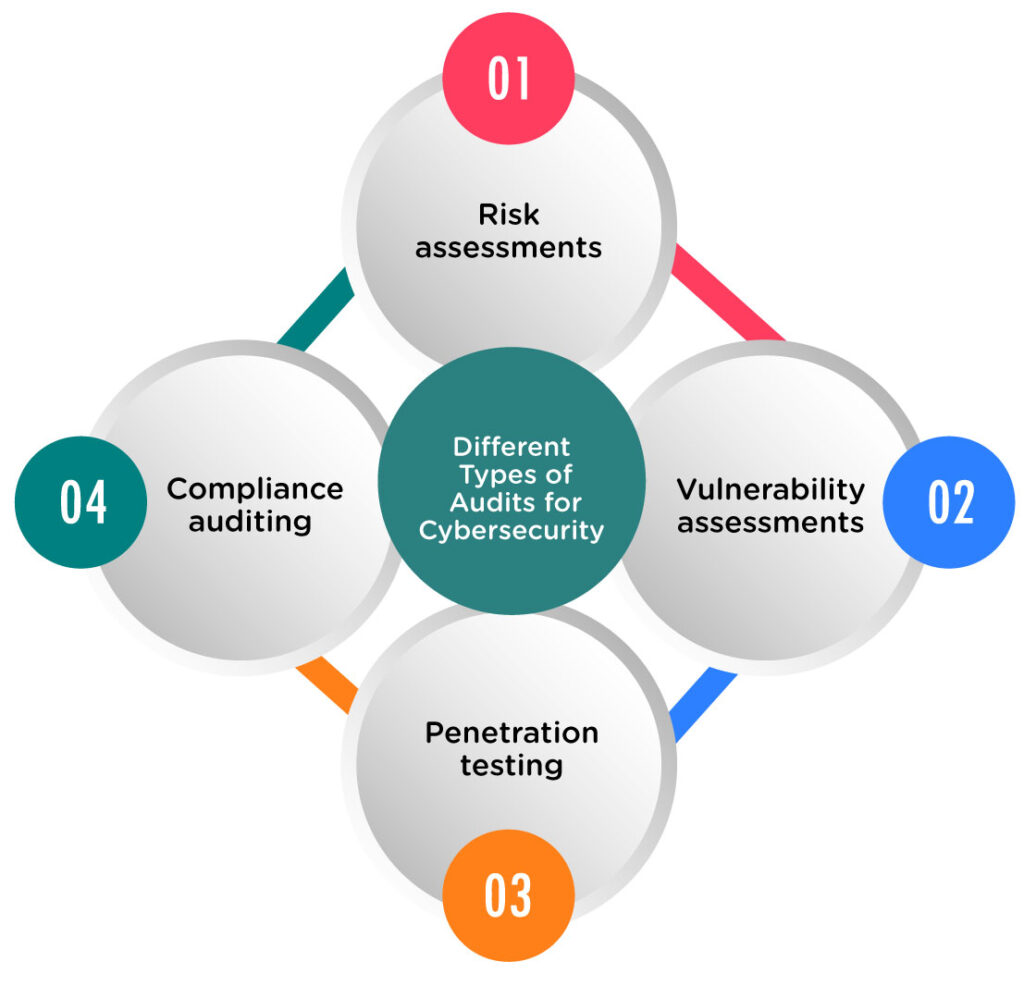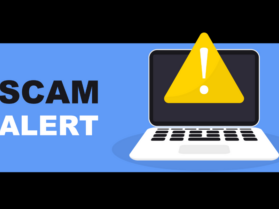Cyber threats are increasing every now and then, therefore protecting your firm is more important than ever. You may examine your systems, identify any vulnerabilities, and address them before issues develop with the help of a cybersecurity audit. It's similar to inspecting your firm to make sure everything is safe and operates properly. Regular audits, regardless of the size of your business, can safeguard your data, foster confidence, and keep your operations safe from online threats.
This blog discusses the meaning, benefits, types, and best practices of cybersecurity audit. Let’s dive in!
What is a Cybersecurity Audit?
A thorough evaluation and study of a firm's cybersecurity and cyber threats is known as a cybersecurity audit.
Proactively identifying threats, vulnerabilities, and related mitigation strategies is the goal of audits in order to stop exploitation of holes.
A range of technologies, procedures, and controls are used in cybersecurity audits to assess how successfully a firm’s programs, devices, networks, and data are safeguarded against threats and hazards. Results are evaluated on a regular basis in relation to industry norms, cybersecurity best practices, and internal baselines. Both external and internal IT and security teams may carry out these audits.
The overall goal of cybersecurity audits is to assist lower cyber risk and strengthen the organization's security posture, while there are many different types of these audits that employ different methodologies based on the size and kind of organization.
Advantages of a Cybersecurity Audit
- Risk evaluation and vulnerability detection
- More robust security protocols
- The practice of rules and guidelines
- Being ready for incident reaction
- Maintaining consumer trust and protecting critical data
- Detecting and preventing threats proactively
Different Types of Audits for Cybersecurity

#1 Risk Assessments
A procedure that finds risks and weaknesses and generates new chances to strengthen those shortcomings.
#2 Vulnerability Assessments
These are comparable to risk evaluations. In order to identify potential vulnerabilities, they, however, concentrate on analyzing the present cybersecurity posture by looking at the network security, cybersecurity procedures, internal controls, and other related areas. Finding the systems or solutions that are most likely to result in a data breach is the main objective of thorough internal or external audits of this kind.
#3 Penetration Testing
It is a practice that basically consists of simulated cyberattacks intended to test current network access control, online applications, IT infrastructure, and other comparable targets in order to assess the efficacy of current anti-intrusion software and data security policies and processes. Combination internal and external audits are becoming prevalent, concentrating on every area where hackers may use IT security flaws to obtain access. Costs for penetration testing can change based on a number of variables, including application, test type, and organization size.
#4 Compliance Auditing
This focuses on the organization's regulatory compliance obligations. The objective is to make sure that the organization's present policies for safeguarding sensitive data comply with regulatory requirements, defend against cybersecurity risks and assist businesses in avoiding expensive fines for non-compliance. Financial penalties, such fines, can be imposed. They may, however, also cover the expenses related to stakeholders or clients losing faith in the company.
Internal Audit and External Audit
External Audit
Professional security audit services are provided by third parties that conduct external cybersecurity audits. In order to find holes and weaknesses in security programs and procedures, these consultants or organizations provide a variety of sophisticated tools and procedures in addition to their vast expertise conducting cybersecurity audits. Despite their many advantages, external cybersecurity assessments are more costly and time-consuming.
Internal Audit
IT, security, risk, and compliance teams are among the internal entities that carry out internal cybersecurity assessments. The firm performs these audits using its own procedures and instruments to assess the efficiency of security measures and compliance with legal mandates.
How Often Should Your Business Perform a Cybersecurity Audit?
The fact that the information only pertains to the condition of your policies and systems at the time of the audit is one of the primary difficulties with cybersecurity. Every day, new hazards surface, and an audit cannot predict what the future may bring.
Regular cybersecurity checks are crucial as a result. Typically, one need to happen at least annually. Nonetheless, there are instances in which doing cyber audits more often makes sense.
Furthermore, if a new legislation is applicable to your company, it becomes sense to carry out an audit before the mandate becomes technically required. It enables your business to assess if it complies with the new regulations beforehand, which makes it simpler to modify your cybersecurity strategy in the event that the current one is insufficient.
After a security event, a cybersecurity audit is often a good idea. The organization may ascertain how unauthorized access was obtained and what is necessary to stop the same vulnerability from being exploited in the future by conducting these simplified evaluations, which in some situations concentrate on the systems that the hackers targeted.
Important Best Practices to Perform Cybersecurity Audits
- For objective outcomes, audits must be conducted often.
- System testing is made easier by collaborating with other parties and utilizing automated techniques.
- Before conducting an audit, review the current data security rules.
- Give a thorough rundown of the security team composition, software solutions, and network architecture.
- To comprehend the cybersecurity posture of the organization, clearly identify the duties of the audit team.
Strengthen Your Business with Regular Cybersecurity Audits!
Conducting cybersecurity audits is a proactive step in creating a resilient firm, not merely a defensive one. Frequent assessments aid in risk identification, compliance improvement, and data protection. By remaining ready, you may strengthen stakeholder and client trust while also shielding your company from possible intrusions. To move confidently and securely across the constantly changing digital world, embrace cybersecurity assessments as an essential component of your plan. To play safe in this world of cyber threats our content will surely help you. For more cybersecurity-related content, visit us at SecureITWorld.
Recommended For You:





